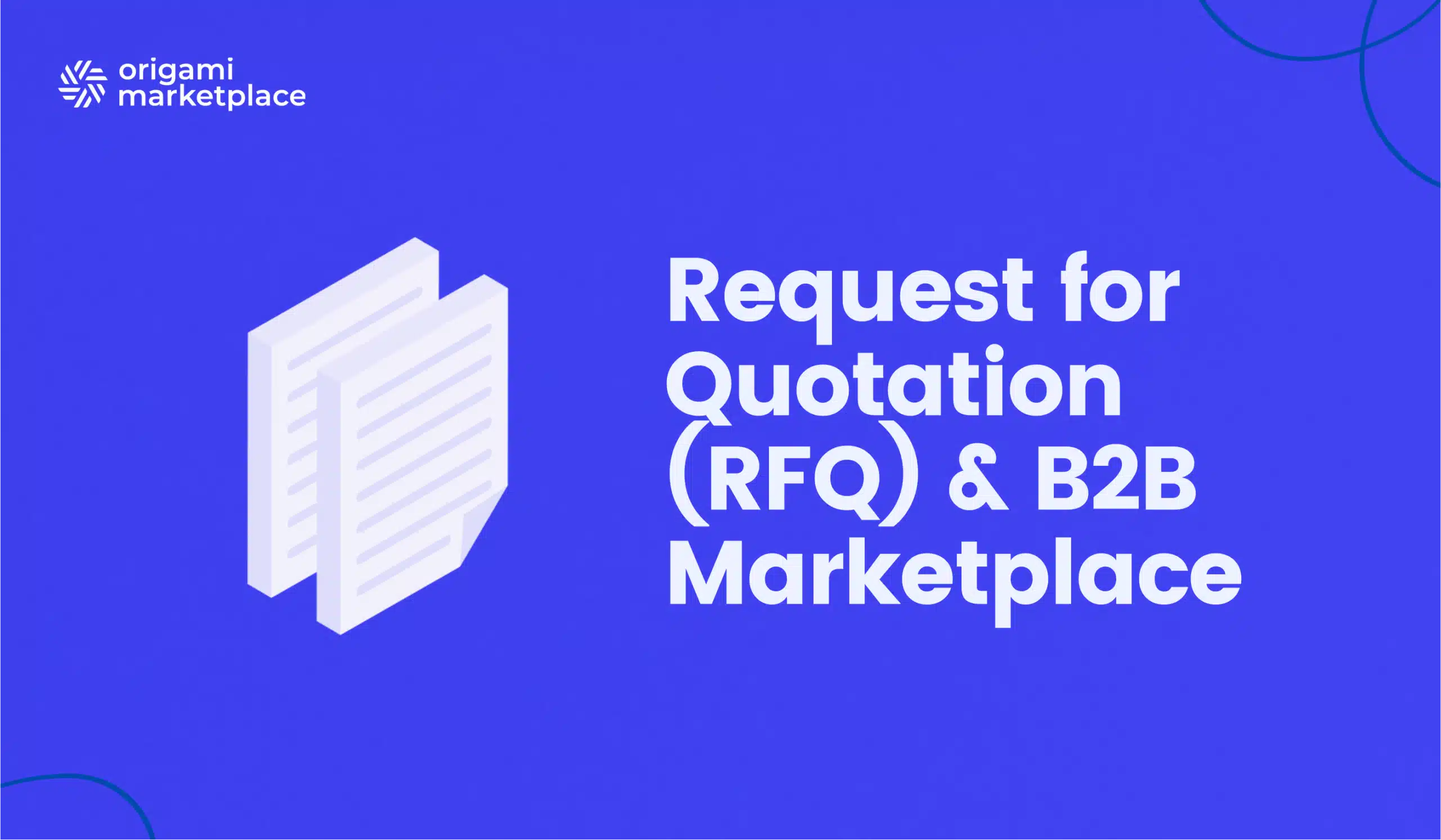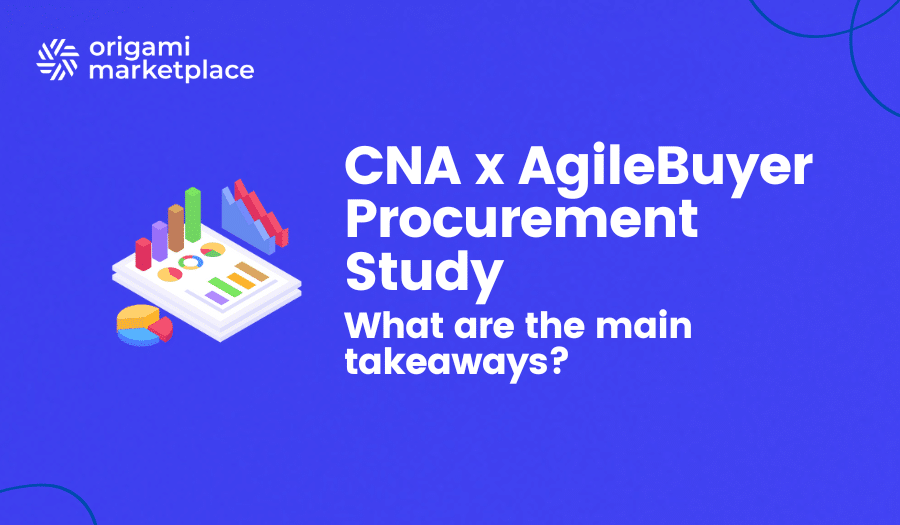Request for Quotation (RFQ) advantage for your B2B Marketplace
- Arnaud
- 6 minutes reading

Managing quotes or requests for quotation (RFQ) is a vital feature in a B2B marketplace. It allows buyers to request personalized offers tailored to their specific needs, thereby optimizing the user experience and increasing your chances of conversion.
Incorporating this functionality into your marketplace streamlines transactions and offers a customized experience to your clients, strengthening the competitiveness of your platform:
👋 No time to read the full article? Find the summary here.
1. What is request of quotation quote management?
RFQ (request for quotation) management is a process that allows buyers to request tailored offers that meet their specific needs. Unlike traditional purchases where prices are fixed, the RFQ system offers flexibility across several areas:
- Custom quantities: When clients want to buy in bulk or with specific configurations.
- Customized pricing conditions: When offering discounts on one or more products or adjusting shipping fees.
- Customized products: For goods requiring specific modifications or complex configurations.
- Tailored delivery conditions: When buyers have particular logistical needs.
This feature is essential in industries where complex transactions, large orders, and customization are prevalent.
2. Benefits of request of quotation management in a B2B marketplace
Integrating a quoting system into a B2B marketplace offers numerous advantages for both buyers and sellers:
- Providing maximum flexibility
Request of quotation management allows for precise responses to customer needs, enhancing their satisfaction. By offering personalized deals beyond standard prices, you give buyers the opportunity to customize orders to their specifications. - Boosting sales and conversion rates
Offering tailored solutions significantly increases the chances of converting prospects into loyal customers. Quotes can be adjusted based on specific criteria (quantities, prices, conditions), making each transaction more likely to close positively. - Strengthening client relationships
The ability to offer customized quotes builds buyer trust. It demonstrates that you listen to their needs and are committed to providing tailored solutions. This level of service fosters long-term client loyalty. - Facilitating complex sales management
In sectors with complex or high-value orders, request of quotation management simplifies negotiations. It facilitates discussions around contract specifics, reducing the time between request and sale completion.
“With a solution like Origami Marketplace, you don’t need to look for a separate quote management system: it is already integrated. This feature enables you to respond precisely to buyers’ specific needs, providing tailored solutions that increase customer satisfaction and conversion rates.”

Alexandre Duquenoy
→ Connect with our B2B solutions expert.
3. How to implement request of quotation management in a B2B marketplace
Here are the key steps to efficiently integrate a quote management system into your B2B marketplace:
Automating the quote request process
Simplify the procedure by allowing buyers to request a quote directly from the product page or cart. Ensure that the user interface is intuitive and smooth. An effective automation system allows clients to quickly specify criteria such as quantities, customization, or delivery times, while ensuring transparent communication with the seller.Centralizing response management
Sellers should be able to manage quotes easily through a dedicated platform. An integrated tool in the marketplace allows efficient tracking and response to request of quotation requests, providing information such as price, lead times, and logistical options. A dashboard for buyers and sellers facilitates tracking of exchanges, ensuring transparency in ongoing negotiations.Implementing approval workflows
Certain transactions may require multiple levels of approval. Setting up an automated validation process for quotes accelerates the sales cycle. For example, if a special discount or exceptional volume is requested, the workflow can route the request to the relevant sales manager.Integrating notifications and automatic reminders
To avoid missing any opportunity, configure a notification system that alerts sellers when a quote request is pending. Automatic reminders can also be sent to buyers if no response is given within a specified timeframe.Offering dynamic and adjustable quotes
Allow sellers to adjust their quote offers in real-time, whether due to price changes or ordered quantities. A dynamic quote offers greater flexibility and ensures the buyer gets the most competitive offer.Tracking and analyzing performance
To maximize this feature’s efficiency, it’s important to track and analyze quote performance: how many quotes convert to sales? What are the average response times? This data helps fine-tune your processes, improve customer satisfaction, and optimize business results.
Download our free requirement specification template
Access essential functionalities to successfully build your C2C, B2C, or B2B marketplace. This simple-to-use backlog template will support you at every project stage.
4. Best practices for optimizing request of quotation management in your marketplace
Enhanced quote customization
Offer advanced customization options, enabling sellers to adjust not only prices but also payment terms, delivery times, or complementary services based on the customer’s needs. This increases client engagement and boosts conversion rates.Integration with other advanced features
Link RFQ management with complementary functionalities such as deferred payments or personalized catalog management. This creates a seamless purchasing experience, offering buyers more flexibility in the order process.Continuous improvement through customer feedback
Listen to customer feedback regarding the quote request process and continually enhance it. For example, if customers find response times too long, you can adjust workflows and introduce more efficient tracking tools.
Request of quotation management is crucial for any B2B marketplace seeking to stand out. It provides a personalized, flexible experience for buyers while simplifying the management of complex transactions for sellers. Integrating this feature boosts conversions and strengthens commercial relationships by offering solutions tailored to each customer’s specific needs.
To maximize this approach’s impact, opt for an evolving solution like Origami Marketplace, which natively integrates quote management along with other strategic tools, such as deferred payment management and catalog connectors, for a high-performing and profitable B2B marketplace.
Key takeaways:
- RFQ management allows buyers to request personalized offers.
- It enhances transaction flexibility, boosts conversions, and strengthens client relationships.
- Integrating this feature into a B2B marketplace simplifies complex sales management.
- Best practices include automation, response centralization, and performance tracking.
Connect with us to discover how the Origami Marketplace API and its partner network can transform your business, no matter its size, with its innovative marketplace model solution.



